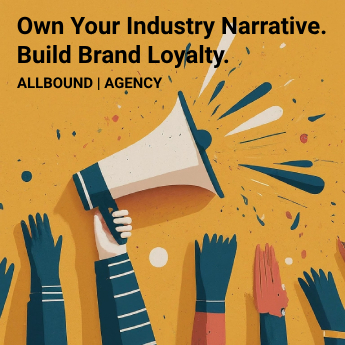Are you looking to optimize your marketing outreach to either other businesses or individual customers? Understanding the differences between B2B and B2C marketing is crucial to developing the best strategies to benefit your company. You’ve come to the right place – let’s dive into how these marketing approaches differ and how to effectively leverage them.
Outbound Marketing for B2B vs. B2C involves tailoring your strategies around your target audience – building professional relationships and providing solutions in B2B marketing, while focusing on emotional connections and enticing retail experiences for B2C customers.
Ready to unlock the full potential of your marketing efforts? Keep reading to discover the unique characteristics, strategies, and tactics for B2B and B2C marketing that will help you refine your marketing strategy and achieve your business objectives.
Definition and Characteristics of B2B Marketing
B2B (business-to-business) marketing refers to the process where businesses sell products or services to other companies. This type of marketing targets professionals looking for solutions to enhance their businesses’ efficiency and profitability. In comparison to B2C marketing, B2B marketing dynamics present unique characteristics:
- Emphasis on longer sales cycles, involving multiple decision-makers in organizations
- Higher value transactions and retention rates compared to typical B2C interactions
- Addressing complex corporate needs and challenges, requiring tailored marketing tactics
B2B marketing focuses on communicating the value of a product or service to other businesses to help them address their unique needs or solve complex challenges. This often involves aligning marketing efforts to optimize the sales funnel, helping potential clients understand the value of the specific product or solution being offered.
Differences in Target Audience
As mentioned above, the main difference between B2B and B2C marketing lies in their respective target audiences. B2B businesses concentrate on catering to other companies, providing solutions that enhance efficiency, productivity, and profitability. To reach this professional clientele, B2B marketers employ various tactics, including:
- Hosting webinars and creating informative content addressing frequently asked questions or complex problems
- Distributing press releases or sponsored content to reach a wider industry-specific audience
- Leveraging targeted advertisements and platforms like LinkedIn to engage with business professionals directly
Enterprises engaging in B2B sales often seek innovative products or services that integrate seamlessly into their existing systems or operations, such as enterprise CRM software or industrial machinery. As such, B2B marketing needs to target the right decision-makers and demonstrate how their product or service would benefit the business in question.
Key B2B Marketing Strategies
To remain competitive in the B2B market, businesses must employ a range of marketing strategies tailored to address their audience’s organizational challenges and needs. Some popular B2B marketing strategies include:
- Content marketing: Crafting informative and engaging content that addresses industry-specific problems or frequently asked questions, such as whitepapers, blog posts, or webinars, helps position brands as thought leaders and trusted solution providers.
- Inbound marketing: Using channels such as search engine optimization, social media engagement, and email marketing campaigns to drive organic growth and generate qualified leads to a company’s offerings.
- Partner marketing: Collaborating with complementary industry partners, resellers, or referral programs to expand market reach and access new prospects.
- Account-Based Marketing (ABM): Focusing on personalized marketing efforts to engage specific key accounts or prospects within an organization, tailoring messaging and tactics to address their unique challenges and needs.
By employing a mix of these strategies, B2B marketers can capture the attention of potential clients and guide them through the sales funnel, ultimately leading to a sales transaction.
Customer Relationship Management in B2B
In the B2B landscape, establishing personal and strategic relationships is crucial for long-term business success. Sales cycles often involve consultations, product trials, and stakeholder approvals, requiring clear communication and frequent touchpoints to ensure clients understand the value of a product or solution.
B2B businesses benefit from having a robust customer relationship management (CRM) system in place to facilitate communication with customers, track leads, and monitor sales pipelines. Through these systems, B2B marketers can quickly assess where prospects are in the sales funnel and provide the appropriate follow-up or support needed to convert leads into paying customers.
Lead Generation Tactics
In the B2B world, generating leads is instrumental in fostering trust-based, long-term customer relationships. To effectively engage with potential clients and drive valuable leads for their businesses, B2B marketers employ various lead generation tactics, including:
- LinkedIn: Leveraging this professional social media platform for networking, prospecting, and establishing thought leadership. LinkedIn is an invaluable outreach tool for B2B marketers looking to engage with decision-makers and influencers within their target industries.
- Email campaigns: Crafting targeted and personalized email sequences to nurture leads and share relevant resources or content.
- Webinars: Hosting informative webinars or attending industry conferences to showcase their expertise and engage with potential customers directly.
- SEO-optimized content marketing: Creating content that is both valuable for users and optimized for search engines can improve your online visibility, generate organic traffic, and attract potential customers.
By understanding and employing these lead generation strategies, B2B marketers can effectively drive qualified leads and expand their customer base, ultimately resulting in long-lasting business relationships and increased revenue.
In conclusion, B2B marketing is an essential component of business growth, characterized by longer sales cycles, higher-value transactions, and unique target audiences. By employing strategic marketing tactics like content marketing, inbound marketing, ABM, and CRM, businesses can effectively engage with other organizations and provide tailored solutions to their complex needs. Additionally, leveraging powerful B2B lead generation tactics, such as LinkedIn outreach and webinars, ensures businesses can foster trust-based, long-term customer relationships, driving sales and increasing revenue.
B2C Marketing Fundamentals
Definition and Characteristics of B2C Marketing
B2C (business-to-consumer) marketing targets individual customers with products and services for personal use. These types of sales generally have shorter sales cycles, immediate purchase decisions, and lower transaction values compared to B2B interactions. The focus of B2C marketing is to create a connection between the brand and the customer, making the purchasing process easy, enjoyable, and enticing.
Understanding B2C Target Audiences
In B2C markets, businesses place strong emphasis on developing brand loyalty and harnessing consumer-oriented branding. Creating an emotional connection and distinct brand experience is crucial for standing out in the competitive retail market. To achieve this, companies cater to personal needs, desires, and aspirations, ultimately building a community of loyal customers. Examples of B2C businesses include retail clothing stores, online retail platforms, and consumer tech companies.
B2C Marketing Strategies
Influencer and social media marketing play a central role in B2C marketing as they enable brands to engage directly with individual consumers. Companies invest heavily in well-presented content, eye-catching images, and celebrity endorsements in order to appeal to a broad audience. Additionally, pricing strategies, frequent promotions, and discounts are commonly employed to motivate quick purchasing decisions, further maximizing revenue. The goal is to create a sense of urgency and exclusivity that drives customers to buy now.
Customer Relations in the B2C Sphere
Unlike in B2B marketing, B2C relationships are often more transactional and require less personalization. B2C companies use tools like chatbots and social media messaging to handle post-purchase inquiries and provide customer service. The key is to create an attentive and responsive customer support system to address any issues that may arise after a sale. As mentioned in a Five Channels article, “B2C companies focus on developing brand awareness.”
Building Brand Awareness and Retail Strategies
B2C companies often execute large-scale campaigns to reach a broad customer base and foster brand recognition. Creative, consumer-centric content is used to create and maintain brand recognition and loyalty, with a goal of turning first-time buyers into repeat customers. Appealing visuals, catchy slogans, and memorable experiences fuel brand visibility and remind consumers of their connection with the product or service.
Customer Journey and Sales Tactics
B2C strategies aim to drive immediate consumer interaction through easy-to-navigate online stores and exciting in-store experiences. Personalized marketing and leveraging customer data for targeted campaigns are key in B2C methodologies. By using analytics to track consumer behavior and preferences, businesses can tailor their marketing strategies to better resonate with their target audience. This, in turn, drives higher conversions and sales.
Effective B2C Communication
B2C communication aims to invoke desire and motivate quick purchasing by creating relatable and enjoyable content. According to Hubspot, “B2C marketers often pursue a more emotional angle when creating campaigns.” Emotional storytelling, aspirational imagery, and entertaining content provide the perfect environment for impulse buying, ultimately leading to increased sales.
Frequently Asked Questions
What is the main difference between B2B and B2C marketing?
The primary difference lies in the target audience; B2B marketing focuses on selling products or services to other businesses, while B2C marketing targets individual consumers. As a result, the sales process, marketing strategies, and customer communication methods differ significantly between the two.
How do B2C marketing strategies differ from B2B marketing strategies?
B2C marketing strategies primarily use emotional appeals, aspirational content, and social media influencers to create a connection with individual consumers. In contrast, B2B marketing focuses on content marketing, inbound marketing, and account-based marketing to establish long-term, trust-based relationships with business clients.
Why is brand loyalty important in B2C marketing?
Brand loyalty is crucial for businesses as it drives repeat purchases and long-term customer relationships. It not only increases business revenue but also lowers customer acquisition costs, as retaining existing customers is less expensive than acquiring new customers.
What role does social media play in B2C marketing?
Social media platforms provide B2C companies an opportunity to engage with their target audience directly, create viral content, and gather real-time feedback. By fostering a sense of community and personal connection with customers, businesses can better understand their audience, tailor their products, and ultimately drive sales.
What are some effective ways to improve customer service in B2C businesses?
Some ways to improve customer service in B2C businesses include offering 24/7 support, utilizing chatbots for quick, simple inquiries, monitoring social media for customer grievances, and regularly gathering feedback to identify areas for improvement.


